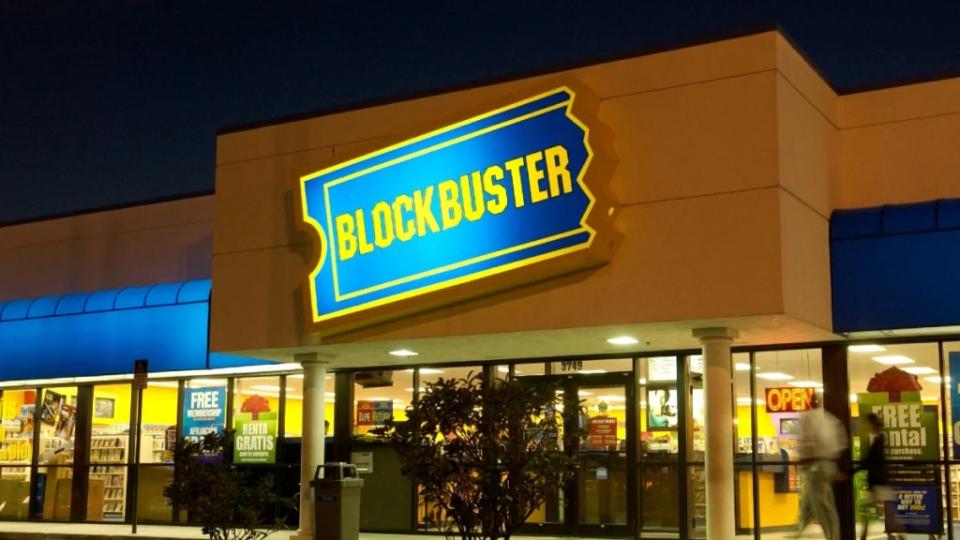With Live Sports and Ad-Tier Flip-Flops, Netflix Shows Never Say ‘Never’ | Commentary
Netflix is moving full throttle into live sports with its landmark Christmas day NFL deal. Funny, because it seems like only yesterday that the streaming giant essentially denied that live streaming of major league sports would ever make sense.
Co-CEO Ted Sarandos said as much when he announced Netflix’s $5 billion WWE licensing deal in January – a deal that includes WWE’s flagship show “Monday Night Raw.” Responding to questions at the time, Sarandos stated that its WWE deal was something entirely different than live sports. It was “sport storytelling,” he said “The drama of sports.” He was even more strident just a few months earlier when he underscored that he “had not seen a profit path” to “renting big sports.”
What a difference four months make. Now it seems that all sports are on the table — and not just the most important league of all, the NFL, despite the fact that the price of live sports programming is booming. Case in point: the NBA, which reportedly is set to lock down a television deal worth $76 billion over 11 years. So Netflix’s NFL Christmas gift represents quite a strategic shift virtually overnight.
It’s certainly not the first time that Netflix has completely changed course.
For years, former CEO (now executive chairman) Reed Hastings and Sarandos vehemently rejected the notion that Netflix would ever offer advertising. “We want to be the safe respite where you can explore … and have none of the controversy around exploiting users with advertising,” Hastings said in 2020. But several quarters of less-than-stellar financial results and stock performance — coupled with Wall Street pressure to re-think its no-ad strategy in order to super-charge growth both domestically and internationally — changed his mind.
Fast forward to late 2022, and voila, Netflix launches its new ad-supported tier, which now finds itself near the top on Netflix’s growth strategy. Although starting slow, that ad tier now boasts over 40 million global active users and serves as a new on-ramp to the full Netflix experience.
Netflix has a long history of unabashed strategic flexibility beyond these two major recent examples that underscores the need to take today’s definitive pronouncements with a grain of salt. Most notoriously, Netflix shocked the world when it announced its first original slate of programming in 2011 in response to being squeezed by Hollywood’s ever-increasing licensing demands. At the time, most thought that its audacious new “House of Cards” strategy would, in fact, collapse and topple to the ground.
Now here we are, of course, tens of billions of dollars later, and Netflix’s original programming strategy – and its massive library of exclusively available content – serve as the streamer’s most important moat. That’s why virtually all major streaming services are now banding together to increase the volume of their programming.
Netflix rivals fighting back with bundles
Just in the past couple weeks we’ve seen several new streaming bundles announced by the majors, including Disney+, Hulu and Max’s new pact. They’re no longer gunning to win the streaming wars. Right now, they’d be happy to just place or show. In the words of the great John Lennon, “War Is Over (Happy Christmas)” – which it undoubtedly will be with Netflix’s new NFL holiday package.
In another example of Netflix flexibility and opportunism, Hastings and Neil Hunt, chief product officer at the time, initially rejected the notion of enabling users to download their content for offline viewing. Instead, they were keen on focusing all resources on optimizing streaming. But that changed in 2016 when users in areas with limited internet made it known that downloading was critical to them. Hastings, to his credit, listened and enabled it.
Later, in a move that surprised many, Netflix moved into gaming. And although games represent only a small part of its overall business, the move recognized the need to expand its product suite and overall revenue-generating path – points several industry pundits (including me) repeatedly made over the years.

To be clear, pointing out Netflix’s flip-flops is not meant to denigrate Netflix or its management for changing its mind. To the contrary, it’s a compliment to Netflix for being open to completely rethinking strategies and priorities based on new data and market conditions. Too often, companies are unwilling to stray from their script, and that inflexibility can lead to devastation.
Case in point was Blockbuster Video. It had the streaming video opportunity well within its reach, but refused to change course even when all signs showed that it should. Blockbuster even had a chance to buy Netflix for a paltry $50 million in 2000 but Blockbuster executives “laughed us out of the room,” according to Netflix co-founder Marc Randoloph. They arrogantly believed that their strategy up to that point would work just fine going forward.
Oops.
Once again, Netflix is demonstrating its uncanny ability to rethink everything in its current discussions with Hollywood talent. Together with Apple and Amazon, Netflix plans to shift to performance-based compensation. If successful (and there’s no reason to believe it won’t be), gone will be the days of Netflix offering boatloads of money upfront to every show and A-list player. That model is a vestige from the past in which Netflix had no choice but to shower talent with cash to get them to associate themselves with a very different brand.
That was then, and this is now. Netflix is on top, with no major competitor in sight. And management’s willingness to abruptly change course – even in the wake of strident comments to the contrary – is a significant reason why.
Reach out to Peter at peter@creativemedia.biz. For those of you interested in learning more, sign up to his “the brAIn” newsletter, visit his firm Creative Media at creativemedia.biz, and follow him on Threads @pcsathy.
The post With Live Sports and Ad-Tier Flip-Flops, Netflix Shows Never Say ‘Never’ | Commentary appeared first on TheWrap.

 Yahoo News
Yahoo News 
